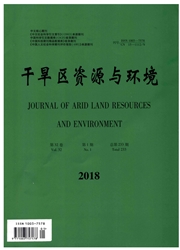

 中文摘要:
中文摘要:
伴随全球气候变化和快速城市化,区域与城市发展受到生态环境的制约,生态城市的建设成为应对当前环境问题的重要途径.基于1990年以来6个时间断面污染排放、环境本底、环境治理3方面数据,利用熵权法确定指标权重,对广东省21个地级城市的环境质量进行综合测评,揭示了广东省环境质量变化的时空演变过程,并解析其影响因素.研究表明:1)1990―2014年,广东省环境质量显著提升,经历了先下降后上升的变化过程,各城市环境质量呈现动态更替演进的过程,排名变动频繁;2)广东省环境质量的泰尔指数值由1990年的3.653增加至2014年的3.893,区域内差异指数值由1990年的3.647增加至2014年的3.893,环境质量存在显著的区域内差异,珠三角城市与非珠三角城市均有高值区和低值区,空间上呈现分散态势;3)粗放型经济、产业转移、环保投资、政府环境治理力度及公众的生活消费方法、环保参与程度对城市环境质量变化有重要影响,对于不同城市的实际影响也存在差异.市场、政府、社会三者有效的相互作用可以促进城市生态建设和发展.
 英文摘要:
英文摘要:
In this day and age, forging an 'eco-city' has become one of the leading ideas to deal with the current environmental challenges against the context of global climate change and rapid urbanization. This paper examines the long-term environmental conditions in Guangdong Province, China, analyzing the changing characters and influencing factors of environmental quality of 21 municipalities with the use of some sophisticated data analysis software like geographic information system (GIS) and SPSS. In so doing, we established a new evaluation system of the level of environmental quality with 9 major indexes as well as the availability of data in terms of pollution emission, environmental background and environmental governance, in 1990, 1995, 2000, 2005, 2010 and 2014. The main findings are: 1) For the whole province, the level of environmental quality has increased significantly from 1990 to 2014 with periodic fluctuation. Moreover, the environmental quality of each city in Guangdong Province is within a dynamic process, in which cities change their positions constantly. 2) As we can see from the results of Theil indexes, on account to the differences within the region, environmental quality in Guangdong Province has noteworthy regional differences. In other words, both low and high value points exist in the Pearl River Delta and other regions that are different from economic disparities. The distribution of environmental conditions also shows characteristics of decentralization, to a certain extent which corresponds to the fact of differences within the region. 3) Environmental quality of each city is closely related to the pattern of economic development, relevant government policy, public awareness of environmental protection and community participation. Extensive economic development, the ignoring of environmental problems and the low public awareness of environmental protection severely hindered the improvement of overall environmental quality in Guangdong Province, but different cities were aff
 同期刊论文项目
同期刊论文项目
 同项目期刊论文
同项目期刊论文
 期刊信息
期刊信息
